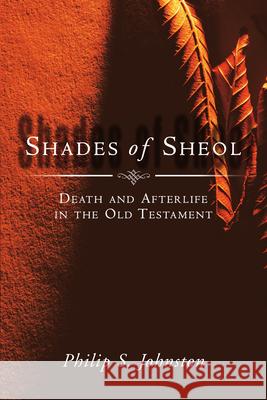Shades of Sheol: Death and Afterlife in the Old Testament » książka
topmenu
Shades of Sheol: Death and Afterlife in the Old Testament
ISBN-13: 9780830826872 / Angielski / Miękka / 2002 / 288 str.
"For in death there is no remembrance of you; in Sheol who can give you praise?" (Psalm 6:5)
- Death is a profound and complex subject. How did the Israelites respond to it?
- The dead apparently went to Sheol. Where and what was it?
- The inhabitants of Sheol are sometimes called "shades." What does this indicate?
- Many ancient peoples venerated their ancestors. Did Israelites do this?
- Did anyone hope for a positive afterlife? If so, in what form?
- What about resurrection? How and when did this belief emerge?











